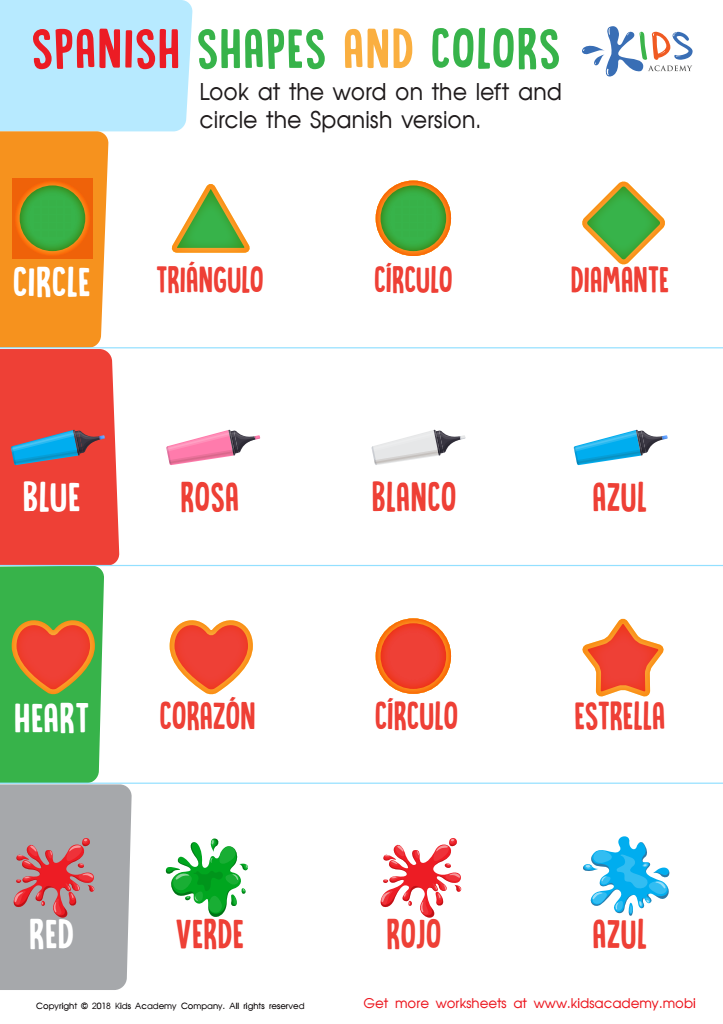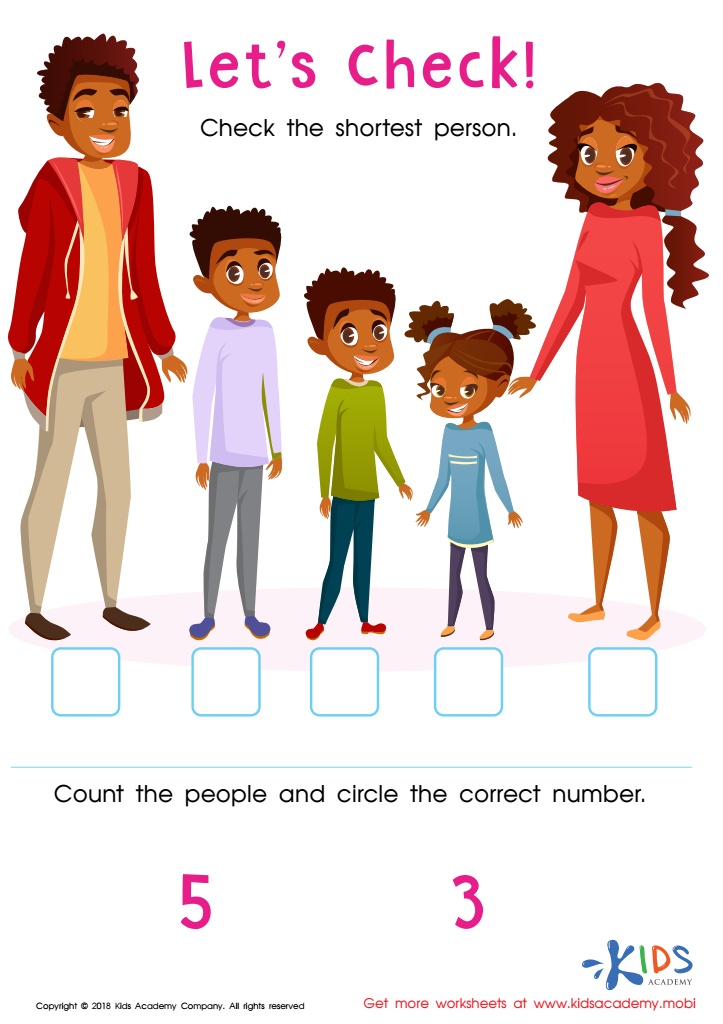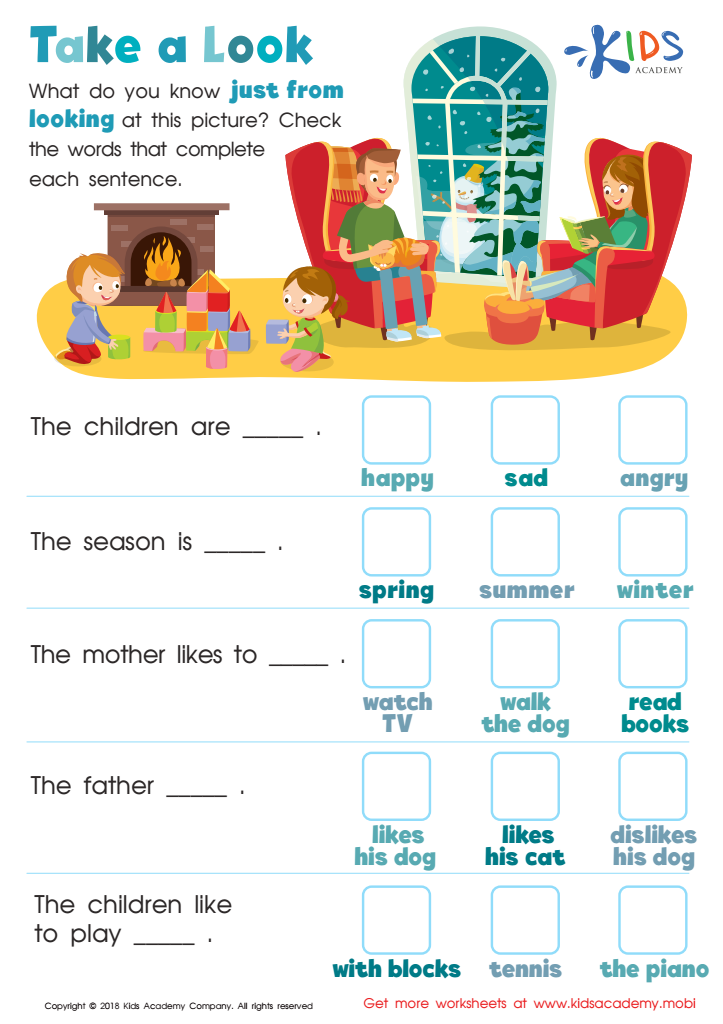Shape Recognition Social Studies Worksheets for Ages 3-7
4 filtered results
-
From - To
Discover our engaging Shape Recognition Social Studies Worksheets designed specifically for children aged 3-7! These fun and interactive resources merge shape identification with early social studies concepts, helping young learners connect shapes to real-world objects and their environment. Each worksheet encourages critical thinking and fine motor skills through activities like matching, coloring, and sorting shapes. Perfect for classroom settings or at-home learning, our worksheets foster creativity while enhancing spatial awareness and social understanding. Instill a love for learning in your child with our captivating shape recognition activities that support foundational skills essential for their growth and development. Explore now and empower young minds!


Spanish Shapes and Colors Worksheet


Let's Check! Assessment Worksheet


Playground Worksheet


Take a Look - Part 1 Worksheet
Shape recognition is an essential component of early education, and its significance extends beyond basic geometry. For children aged 3-7, shape recognition serves as a foundational skill that supports cognitive development and enhances social studies learning. Recognizing shapes helps young learners identify patterns, categorize objects, and understand their environment, which is crucial as they navigate through their social world.
From a social studies perspective, understanding shapes can assist children in grasping concepts related to architecture, community layouts, and cultural symbols. For instance, children can explore the shapes of buildings, flags, and other community structures, fostering a sense of appreciation for diversity and cultural identity.
Engaging with shapes encourages collaboration during play and group activities, building social skills such as communication and teamwork. Parents and teachers can facilitate this learning through hands-on activities, art projects, or real-world explorations, making learning fun and memorable.
Moreover, early shape recognition is linked to later success in mathematics and spatial awareness, creating a strong educational foundation. In summary, parents and teachers should prioritize shape recognition not merely as a math skill, but as a stepping stone towards holistic development, community understanding, and fostering a sense of belonging in children.
 Assign to My Students
Assign to My Students





















